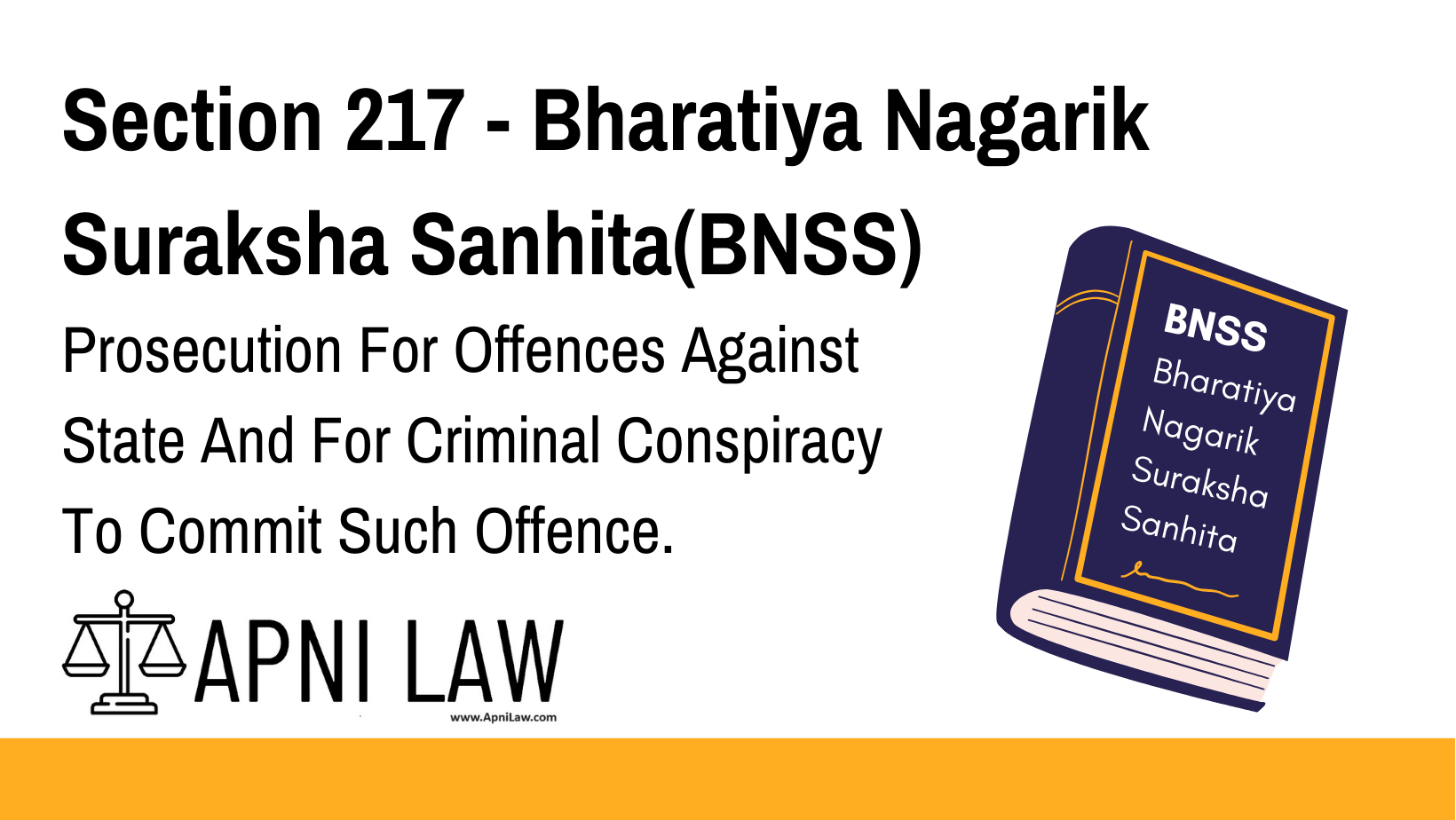Code:
(1) No Court shall take cognizance of—
(a) any offence punishable under Chapter VII or under section 196, section 299 or sub-section (1) of section 353 of the Bharatiya Nyaya Sanhita, 2023; or
(b) a criminal conspiracy to commit such offence; or
(c) any such abetment, as is described in section 47 of the Bharatiya Nyaya Sanhita, 2023, except with the previous sanction of the Central Government or of the State Government.
(2) No Court shall take cognizance of—
(a) any offence punishable under section 197 or sub-section (2) or sub-section (3) of section 353 of the Bharatiya Nyaya Sanhita, 2023; or
(b) a criminal conspiracy to commit such offence, except with the previous sanction of the Central Government or of the State Government or of the District Magistrate.
(3) No Court shall take cognizance of the offence of any criminal conspiracy punishable under sub-section (2) of section 61 of the Bharatiya Nyaya Sanhita, 2023, other than a criminal conspiracy to commit an offence punishable with death, imprisonment for life or rigorous imprisonment for a term of two years or upwards, unless the State Government or the District Magistrate has consented in writing to the initiation of the proceedings:
Provided that where the criminal conspiracy is one to which the provisions of section 215 apply, no such consent shall be necessary.
(4) The Central Government or the State Government may, before according sanction under sub-section (1) or sub-section (2) and the District Magistrate may, before according sanction under sub-section (2) and the State Government or the District Magistrate may, before giving consent under sub-section (3), order a preliminary investigation by a police officer not being below the rank of Inspector, in which case such police officer shall have the powers referred to in sub-section (3) of section 174.
Explanation:
Section 217 of the Bharatiya Nagarik Suraksha Sanhita (BNSS) 2023, states that no court can take cognizance of certain offenses, including criminal conspiracy, abetment, and certain offenses against public servants, without prior sanction from the Central Government, State Government, or the District Magistrate. The purpose of this provision is to protect public servants from frivolous or politically motivated complaints and to ensure that only genuine cases are investigated.
- Subsection (1): This subsection deals with offenses punishable under Chapter VI of BNSS (Offences against Public Servants), Section 194 (Giving false evidence), Section 297 (Intentional insult to the religious feelings of any class by insulting its religion or religious beliefs) and Section 351 (Assault or criminal force to deter public servant from discharge of his duty). It also covers criminal conspiracy and abetment of these offenses. In these cases, prior sanction from the Central or State Government is mandatory.
- Subsection (2): This subsection applies to offenses under Section 195 (Giving false evidence with intent to procure conviction of an innocent person) and specific clauses of Section 351. It also covers criminal conspiracy. Here, prior sanction can be obtained from either the Central Government, State Government, or the District Magistrate.
- Subsection (3): This subsection deals with criminal conspiracy punishable under Section 61 (Criminal Conspiracy). Prior consent from the State Government or District Magistrate is required for the initiation of proceedings, unless the criminal conspiracy involves an offense punishable with death, life imprisonment, or rigorous imprisonment of two years or more, or falls under Section 215.
- Subsection (4): This subsection provides the authority to the relevant bodies (Central/State Government, District Magistrate) to order a preliminary investigation by a police officer (not below the rank of Inspector) before granting sanction or consent. The police officer conducting such investigation is empowered under Section 174(3).
Illustration:
Let’s say a person accuses a police officer of demanding a bribe. Before the court can take cognizance of this case, the person would need to obtain prior sanction from the State Government. The government would then review the allegations and decide whether or not to grant permission to proceed with the case.
Common Questions and Answers:
- Q: What is the purpose of this section?
- A: The primary purpose of Section 217 is to protect public servants from frivolous or politically motivated complaints. This ensures that only genuine cases are investigated and prevents unnecessary harassment of government officials.
- Q: Who can grant sanction?
- A: The Central Government, State Government, or the District Magistrate, depending on the specific offense and the applicable subsection.
- Q: What happens if sanction is not obtained?
- A: If the court takes cognizance of an offense mentioned in Section 217 without obtaining the necessary prior sanction, the proceedings may be declared invalid.








